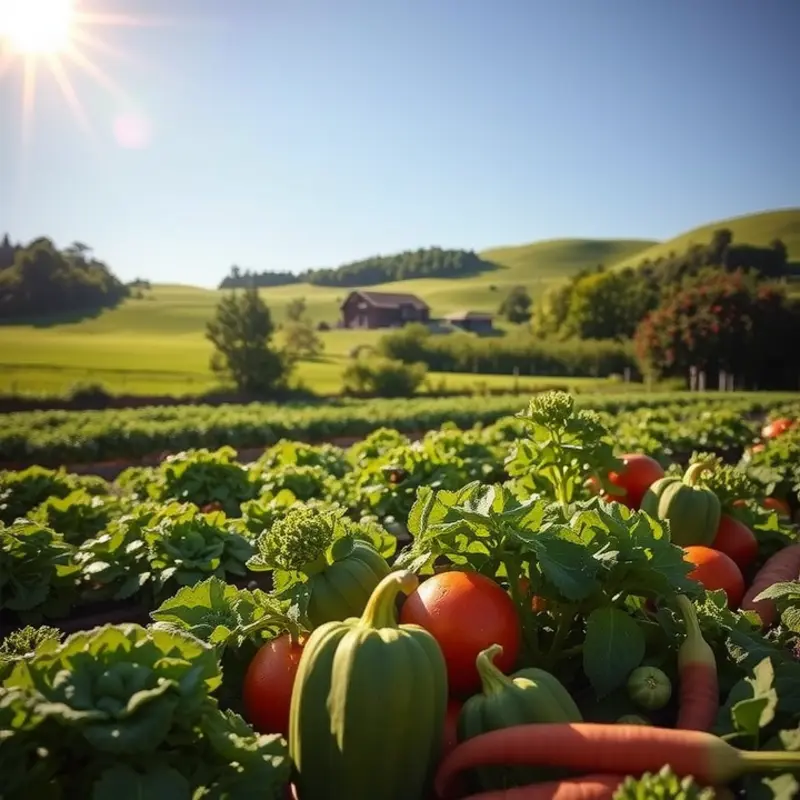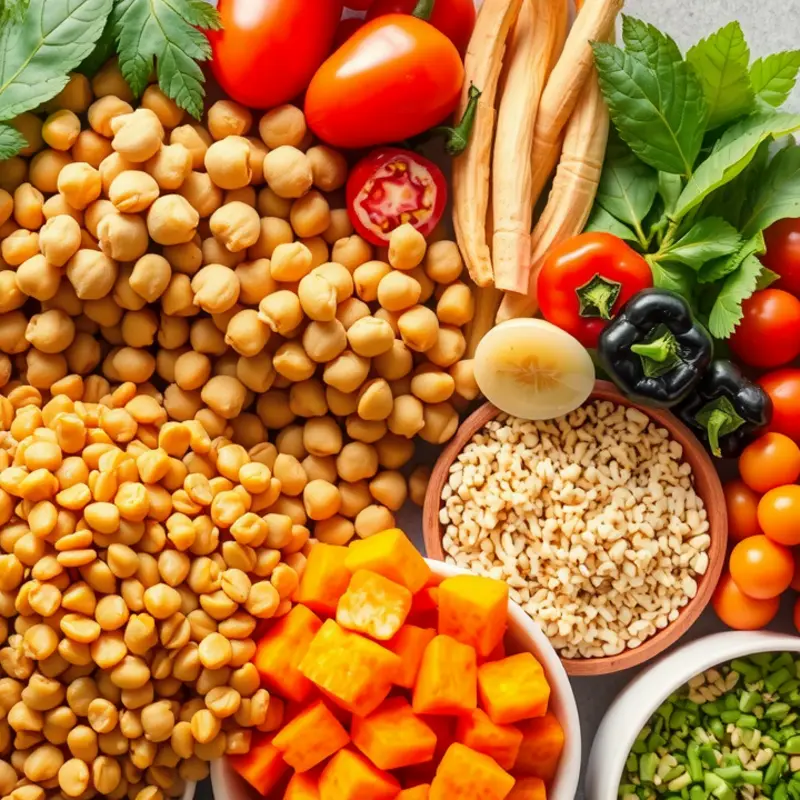Choosing meals that support ecosystem balance is not just a trend; it’s a vital step towards ensuring our planet’s health. As environmentally-conscious individuals, the choices we make at mealtime contribute significantly to sustainability and biodiversity. By understanding the impact of our food choices, we can nurture the environment while enjoying nutritious meals. Each dish holds the potential to foster ecological harmony, reduce carbon footprints, and support local ecosystems. Let’s explore how our meals can serve as a bridge to sustainability and encourage a flourishing planet.
Harvesting Harmony: The Power of Plant-Based Eating

Embracing a plant-based diet offers a multitude of benefits for both personal health and the environment. By focusing on fruits, vegetables, legumes, and whole grains, individuals can reduce their carbon footprint and contribute to global biodiversity.
Plant-based eating plays a crucial role in decreasing greenhouse gas emissions. The production of plant foods typically requires far fewer resources such as land and water, and generates significantly lower emissions compared to meat production. This not only helps mitigate climate change but also conserves important natural habitats, supporting a more diverse range of plant and animal species.
Furthermore, plant-based diets help promote local agriculture, enhancing community resilience and food security. Purchasing seasonal produce not only ensures freshness and flavor but also reduces the energy costs associated with transportation and storage. Consuming locally grown food means supporting small farmers who often employ eco-friendly and sustainable farming practices.
To maximize sustainability, consider adapting your diet according to the changing seasons. In spring, enjoy leafy greens and asparagus. Summer promises a bounty of tomatoes, peppers, and berries. As fall arrives, indulge in root vegetables and squash, while winter can be warmed with hearty stews featuring carrots and lentils.
Transitioning to a plant-based diet might seem daunting, yet small steps can make the shift more manageable. Start by incorporating “Meatless Mondays” into your routine or opt for vegetable-based meals two to three times a week. Gradually expand your repertoire by exploring new recipes and cuisines. For flavorful, nutritious meals, experiment with spices, herbs, and other non-salty flavor boosters. These can not only enhance taste but also provide a robust nutritional profile.
Practical tips for transitioning include keeping your kitchen stocked with diverse staples such as beans, lentils, whole grains, and a variety of fruits and vegetables. Batch cooking or meal prepping can save time and ensure that you’re never short of quick, nutritious meals. This approach aligns with sustainable practices by utilizing available ingredients efficiently, thus reducing food waste.
Here are a couple of simple, plant-based recipes to inspire your culinary journey. Try a vibrant quinoa salad with cherry tomatoes, cucumber, feta, and a lemon-tahini dressing. If you crave something hearty, consider a comforting chickpea curry made with coconut milk and infused with turmeric and cumin.
Each meal you choose to make plant-based is a step towards nurturing both your body and the planet. By placing sustainable practices at the forefront of our food choices, we can harmonize our lifestyles with the ecosystems that sustain us, ensuring a greener future for all.
Sustainable Protein Sources: Alternatives to Conventional Meat

Shifting to sustainable protein sources is a powerful step towards ecological balance. Conventional meat production requires extensive resources, pushing the need for viable alternatives that are both nutritious and environmentally friendly. Pulses, such as lentils and chickpeas, are exceptional plant-based protein sources. They not only offer substantial protein content but also enrich soil quality with nitrogen, reducing the need for chemical fertilizers. Additionally, pulses require significantly less water and land compared to meat production, making them an eco-conscious choice.
Nuts and seeds, packed with healthy fats and proteins, provide another superb alternative. Almonds, walnuts, and chia seeds are rich in essential nutrients and promote sustainable farming practices. While some nuts like almonds have been criticized for their water use, opting for rain-fed varieties or selecting other nuts like hazelnuts can mitigate these concerns. Furthermore, seeds like flax or pumpkin require minimal resources to cultivate.
Ethically sourced seafood presents an option for those seeking animal protein. By choosing sustainably harvested fish and shellfish, consumers can support marine biodiversity and reduce the pressure on overfished species. For guidance on incorporating seafood sustainably and efficiently into meals, consider exploring speedy seafood preparation tips.
The benefits of integrating these protein sources extend beyond resource conservation. By diversifying our diets with such alternatives, we also enrich our nutrition, obtaining a better mix of fibers, vitamins, and minerals. Crafting meals with these ingredients need not be complex. A simple lentil salad with toasted almonds, dressed with lemon and olive oil, is both delightful and nourishing. Alternatively, whip up a chickpea and walnut stew enriched with spices for a comforting dish.
Reducing meat consumption isn’t just about choosing a salad instead of steak; it’s about reimagining meals to celebrate variety. Support your local farmers by purchasing from farmers’ markets, where transparency and sustainability practices are often prioritized. Similarly, seek out local fisheries committed to responsible techniques.
Switching to sustainable proteins is an impactful way to contribute to the planet’s health. By making these mindful food choices, we actively participate in a movement towards a greener future, preserving ecosystems for generations to come.
Final words
Supporting ecosystem balance through our meals involves conscious decisions that reflect our values towards sustainability and health. By prioritizing plant-based foods and sustainable protein sources, we not only nourish our bodies but also promote a thriving planet. Making small, intentional changes in our diets can lead to significant environmental impacts, helping to combat climate change and preserving biodiversity. Every meal presents an opportunity to make a difference. Embrace local, seasonal ingredients, choose plant-based options, and explore sustainable protein sources to contribute to a more balanced ecosystem. Together, our choices can lead to a healthier planet for future generations.








